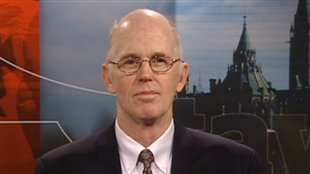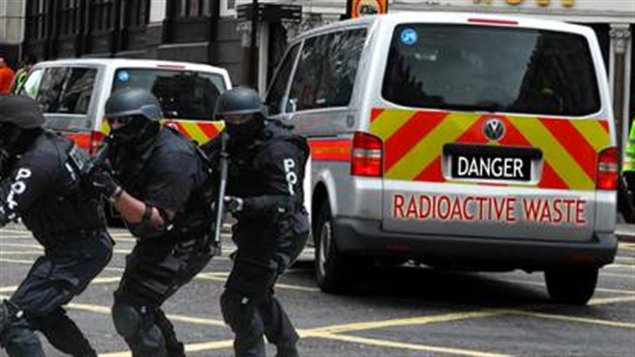76 convoys of nuclear waste are slated to travel by road over 1,000km between Canada and the U.S. in what Sierra Club Canada calls risky road trips. The highly toxic, weapons-grade uranium is dissolved in nitric acid and will travel in containers, the group says, are designed for dry nuclear waste.
“Our first concern is that it’s risky,” says John Bennett, executive director of Sierra Club Canada. “If there was an accident en route or if some terrorists or other decided to intervene this could make a very effective dirty bomb. And given those risks, do we need to do it this way in order to be secure in terms protecting us from this material getting into public hands or into the environment. The answer for us is no.”

Toxic waste would pass people and waterways
The waste would travel from Chalk River in the Canadian province of Ontario to Savannah River in Carolina for reprocessing and would pass many populated areas and waterways which serve farms and on which millions of people of people depend for drinking water.
Chalk River laboratories have the technology to process the waste into a dry form, says Bennett, which would make it much safer to transport. Activists on both side of the border are concerned about the containers not being suitable to carry liquid waste.
Public hearings demanded
Activists have asked for public hearings on the issue, but Atomic Energy Canada Limited has apparently declined for security reasons. Bennett says Sierra Club Canada does not want to know the when and where the shipments will go, but whether they really are necessary. He is convinced they are not.
“We want a chance to make sure that if this is going to happen, that it’s done with the full confidence of the public. They’re asking… it may be a small risk, but it’s a small risk with huge implications if something should go wrong.”







For reasons beyond our control, and for an undetermined period of time, our comment section is now closed. However, our social networks remain open to your contributions.